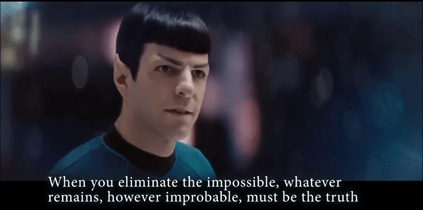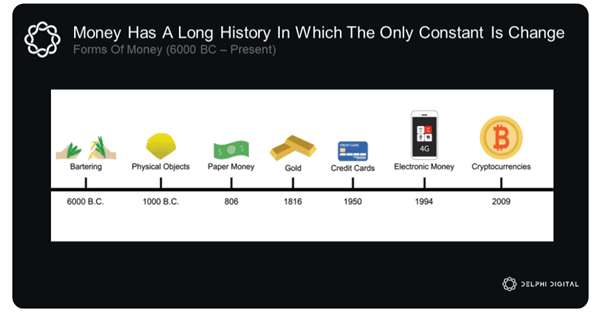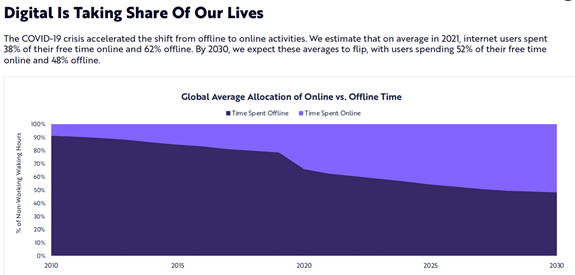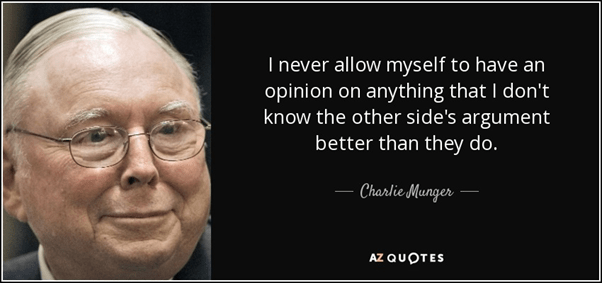Executive Summary:
- What is first principles thinking?
- The benefits of first principles thinking.
- Why don’t other use it?
What is First Principles Thinking?
In an effort to improve my decision-making skills, I recently stumbled upon a rather venerable framework for solving complex problems. The technique, known as “reasoning from first principles” was one I’d come across before in casual reading, yet was something I had failed to implement into my daily life. Having been adopted by numerous great thinkers such as fellow compatriot Elon Musk, my own (self-appointed) mentor Charlie Munger, and even hardened stoic Marcus Aurelius, I deemed it worth conducting a deeper dive into this rather intuitive approach to problem solving.

So, what exactly is “first principles thinking”? It can most succinctly be summarized (by me) as relentless, unbiased questioning to arrive at the root cause of a specific problem. By attempting to find these “fundamental truths”1, first principles thinking removes the reliance on others’ assumptions which may distort the truth. This subsequently promotes organic thinking by forcing individuals to think for themselves as they pick apart each question and solve problems from the ground up, rather than reasoning by analogy1. Let’s look at a quick example:
Traditional Thinking:
Problem:
“Governments are printing too much money”
Solution:
“An asset that has a fixed supply and thus cannot be debased, hence Bitcoin”
First Principles Thinking:
Problem Statement:
“Governments are printing too much money”
Solution:
Well… before proposing a solution, first principles thinking dictates we question both the problem statement and the traditional proposed solution:
Question the Problem Statement:
By questioning the assumptions implicit within the problem statement, we’re forced to ask questions such as:
· Which “governments” are we referring to here? Which department of Government is actually “prints” money?
· Do governments actually print money? How much is “too much”? Are there any exceptions whereby such excessive “printing” hasn’t led to monetary debasement (Japan)?
· How should we define “money”? Are we talking about bank reserves, broad money, base money?

These are non-trivial questions that need clarification before we’re even able to move on to proposing a solution, otherwise we’re not comparing apples with apples.
Question the Traditional Solution:
Let’s assume we answered the above questions and concluded that we’re referring to the US Federal Reserve printing excessive bank reserves. The next step would be to question the traditional solution to understand why such a conclusion falls short in its analysis. Before offering a rational solution to the problem, we could ask questions such as:
- What are the alternative “store of value” assets to Bitcoin (gold, silver, real estate, art, SDRs, BRICS coin etc.)?
- What incentive mechanisms are currently in place that would support any or a combination of any of the above assets replacing the current monetary system?
To answer the first question one could conduct a thorough google search, however the answer to the second question is more complex. To best understand incentive schemes, I find it helpful to ask the “5 why’s” until arriving at the underlying root problem.
An example would look like this:
- Q: Why is the government printing so much money? A: Sovereign debt bubble.
- Q: Why is there a sovereign debt bubble? A: Asset price manipulation.
- Q: Why is there asset price manipulation? A: Declining structural GDP growth.
- Q: Why is there declining structural GDP growth? A: Manipulation of the money supply.
- Q: Why is there manipulation of the money supply? A: Centralization of money and nation state.
The point of questioning both the problem statement and the “traditional” solution, is to force ourselves to analyze all preconceived assumptions before attempting to offer our own first principles-based solution. In the example above, this has helped us reframe the initial problem statement from “Governments are printing too much money” towards something akin to “Nation states are exercising monopolistic control of their citizens’ purchasing power”.
Having researched other potential “store of value” assets and the corresponding incentive structures of the current players in the traditional financial ecosystem, we’re now considerably better positioned to provide a rational solution to the problem (rather than simply deferring to Bitcoin, merely because it “has a fixed supple that cannot be debased”).
Benefits of First Principles Thinking:
Ok, so in order to assess complex problems, first principles thinking requires us to ask a heck of a lot of questions, we get it. But is this all necessary and why should we care? Well, there are three main reasons:
- It Promotes Humility:
By adopting the mantra of “always question, never assume”, we’re forced to remove our egos out of the equation and remain humble to the (more than likely) possibility that we may be wrong.
- It Promotes Intellectual Honesty:
By analyzing all various outcomes before positing a solution to a problem, we remain intellectually honest and rational, giving cognizance to all possible outcomes and attempting to place a corresponding weight on each (rather than “trusting our gut” or being manipulated by our various cognitive biases).
- It Promotes Innovative Thinking:
By asking the “5 why’s”, we’re able to apply individualistic thinking to analyze the root cause of the problem at hand, rather than relying on the presumptions of others, thereby promoting deep and thoughtful understanding of the core problem. This sets a firm foundation for innovative intellectual solutions to be proposed (rather than solving for the wrong problem to begin with).
Why don’t other’s use it?
Well, if this thought process if so great, why don’t more people do it? And how should we incorporate such strategy into our daily lives to gain the benefits mentioned above? As for the former, I’ve come up with what I believe to be some of the primary reasons below:
1- Questioning Requires (Lots of) Time and Energy:
The first reason is perhaps the most apparent – thinking is difficult and requires the use of arguably our most scarce resource, namely focus. While there are 24 hours of time in a day, we’re typically only for productive for ~5–6 hours which we dedicate to high quality focus.
But why is thinking deeply so difficult in today’s world? Well because not only do we require a large caloric intake (the brain accounts for up to 20% of our body’s energy consumption) but we’re also faced with more distractions that ever thanks to social media and our iPhone screen time rocketing to new all-time highs as digital takes over our lives.

This means we’re getting more notifications than ever and spending less time on tasks, resulting in greater stress levels and a rapid dilution of our daily dose of willpower, all making us ever more vulnerable to decision fatigue2. Coupled with that pesky availability bias where we’re biased to agree with information that’s easy to mentally access (because it doesn’t require a thoughtful response to agree with someone) and you’ve got a recipe for sub-optimal decision making.
2- Our Biases are Subconscious:
The final reason I believe many people don’t use first principles thinking is because it requires a significant amount of self-awareness given the (often) subconscious nature of our biases. Most people don’t allocate time for the necessary introspection required to mitigate these biases and therefore lack the ability to recognize and alter their own impaired decision-making processes.
Confirmation bias and recency bias are a few of the most prominent biases I most often see individuals on Twitter and LinkedIn fall prey to. Many such individuals rarely seek out rational evidence that may counter their own firmly held views before quickly posting a tweet or reposting one of their colleagues’ “insights”.
In addition, there are other equally prominent, highly manipulatable and subjective biases related to one’s ego and public persona that may tilt one’s objectivity. Some of the more common biases that I can point to would be social proof (replicating others’ behavior based on the belief that the group as a whole knows best), status quo bias (not wanting things to change) and commitment and consistency bias (people want to be viewed as remaining consistent in the decisions they have made).
One such example of falling prey to some of these biases are Bankless hosts Ryan Sean Adams and David Hoffman who believe that Ethereum represents “ultrasound money”3. By structuring their public personas around this idea and allocating a significant portion of their net worth to Ethereum, they’re likely subject to biases such as:
- Confirmation Bias:
By going “all in” on digital assets (with a heavy weighting towards Ethereum), they’re bound to constantly seek out evidence that would continue to propagate such narrative. Note that it’s significantly easier to gain listeners/followers if you tell them what they want to hear or already believe i.e. it’s far easier to propagate a narrative by focusing on how much money one can make (following Ethereum’s upgraded tokenomics schedule), rather than focusing on the Protocol’s long term probabilistic success. The latter would likely require a significantly more complex, uncertain answer, something that would highly likely dilute the quantity of viewers/followers.
- Commitment and Consistency Bias:
Because humans struggle with uncertainty, we are typically highly unsatisfied with those who constantly change their opinions. This would make it incredibly difficult for
the Bankless hosts to change their mind when confronted with disconfirming evidence (no matter how sound the reasoning is) given how publicly they have declared the extent to which they believe in their own narrative.
To an effort to remain neutral, I’d like to reiterate that I do believe the Bankless podcast produces numerous high-quality content episodes. All I’m offering is my own doubt surrounding their ability to remain truly objective given the numerous biases they’re likely suffering from given their current incentive structure.
Conclusion:

In summary, first principles thinking is an effective decision-making tool that can help anyone rationally assess complex problems. The tool is highly effective at helping mitigate our own biases, however we need to remain highly self-aware to enjoy the benefits associated with this type of thinking.
The most effective manner of incorporating this into your daily life is to remain humble and continue to seek out others’ views until you “know the side of the argument better than they do”. This should be viewed as an iterative process whereby one intellectually debates each argument against the other. Over time, the solution that best holds up is the most likely the probabilistic truth.



